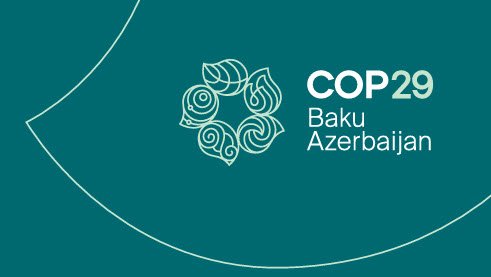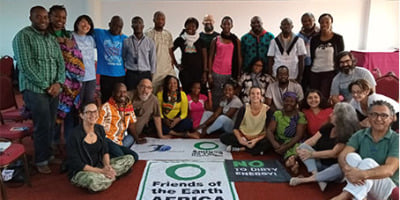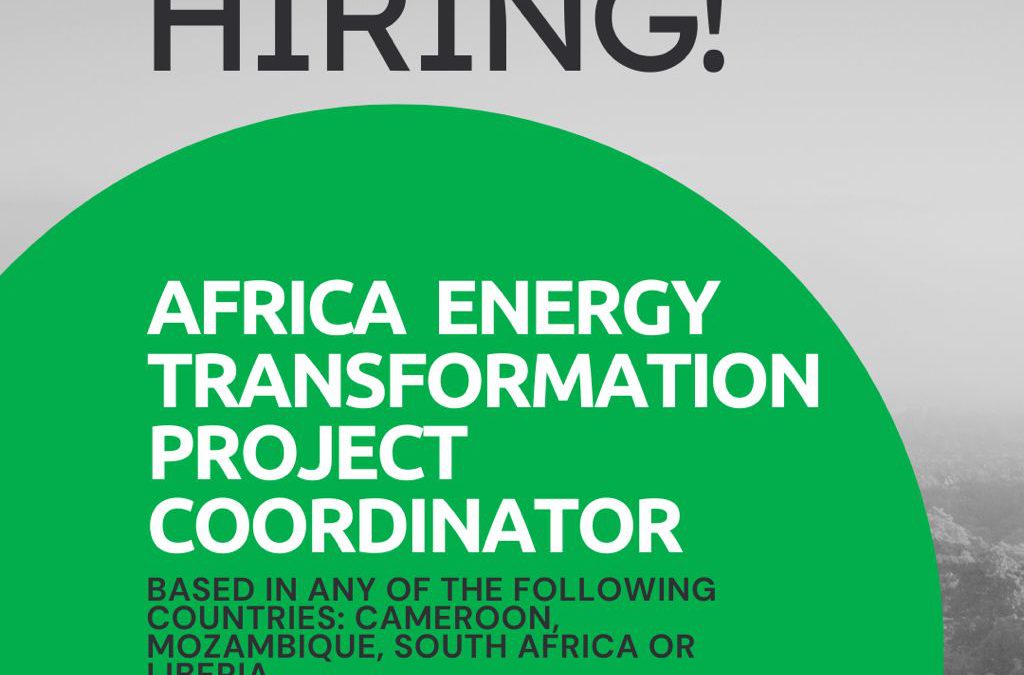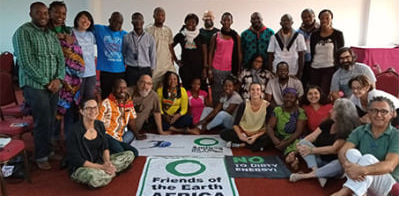
by FoE Africa | Nov 15, 2024 | Uncategorised
Position Statement for COP29: Advancing Africa’s Just Energy Transition and Climate Justice
As we move towards COP29, Africa faces intensifying climate challenges that demand urgent global action. Despite contributing only around 3% of global carbon emissions, African nations are disproportionately affected by climate disasters, with vulnerable communities bearing the brunt. The outcomes from COP28 have fallen short of addressing these escalating crises. At COP29, we call for a summit that prioritizes Africa’s just energy transition, ensures equitable climate finance, and promotes energy justice for all African people.
The continent is grappling with unprecedented climate disasters, underscoring the urgent need for systemic changes in global climate action and finance.
Africa’s Climate Crisis: Disasters and Escalating Impacts
In 2024, Africa has faced some of the most devastating climate events in recent history, reinforcing the need for action at COP29:
Eastern Africa floods: Widespread flooding across Kenya, Somalia, and Ethiopia has displaced over 1.5 million people. Intensified by climate change, these heavy rains have destroyed homes, infrastructure, and farmlands, severely impacting food security.
Cyclone Batsirai: This cyclone affected Madagascar and Mozambique, leaving over 2 million people impacted, with extensive loss of life and destruction of crops and infrastructure in already food-insecure regions.
Sahel drought: Prolonged dry spells have devastated agricultural communities in Mali, Niger, Burkina Faso, and Chad, exacerbating food crises and threatening millions who rely on rain-fed agriculture.
North African wildfires: In Tunisia and Algeria, rising temperatures have led to more frequent, intense wildfires that are ravaging ecosystems, displacing communities, and decimating agricultural land.
Conflict-driven famine in Sudan: Ongoing conflicts, exacerbated by drought, have left millions without food and water. In 2024, more than 20 million people in Sudan are in urgent need of humanitarian aid.
These events underscore Africa’s vulnerability to climate change and the need for global support to enhance adaptation, disaster response, and recovery. Yet, international climate finance remains woefully inadequate.
Linking Just Energy Transition to Africa’s Broader Just Transition Goals
Africa’s just energy transition is inseparable from a broader just transition one that envisions a new system driven by renewable energy, rooted in democratic and community-led initiatives, and aligned with the vision of movements advocating for deep transformation. We call for an energy transition connected to a Just Transition that redefines energy systems to serve the masses of poor communities, capacitating them to drive and define the project.
COP29 must recognize that the energy transition is not only about changing fuels but about reshaping power structures to capacitate communities and prevent exploitation.
A Just Energy Transition for Africa: Ending Fossil Fuels, Prioritizing Renewable Energy
Africa’s energy future must pivot to renewable energy solutions that are people-centered, equitable, and sustainable. The continent has immense potential in solar and wind energy, yet investment in these sectors remains low. At COP29, we demand a complete phase-out of fossil fuels and a just transition to renewables that prioritizes local, community-owned energy systems.
Over 600 million Africans still lack access to electricity, while fossil fuel projects like the East African Crude Oil Pipeline (EACOP) continue to expand, displacing communities and polluting ecosystems. COP29 must prioritize local, community-owned renewable energy solutions that capacitate Africans, improve energy access, and create sustainable livelihoods. Energy justice must be central, ensuring that communities living in energy poverty are no longer forced to bear the costs of a climate crisis they did not create.
Addressing Fair Climate Finance Through an African Lens
Africa receives only 3.5% of global climate finance, leaving countries without the resources to adapt to climate crises or to invest in renewable energy. The $100 billion annual pledge from developed countries has yet to be fulfilled, and the funds delivered are often in the form of loans, exacerbating Africa’s debt burden. This is neither fair nor just.
COP29 must secure climate finance in the form of grants, not loans, to avoid deepening African debt. Moreover, funding should prioritize African countries needs, focusing on adaptation, loss and damage, and renewable energy. The Loss and Damage Fund operationalized at COP28 was a positive step, yet its accessibility and funding scale remain insufficient. COP29 must ensure that this fund is fully funded and easily accessible to African countries without bureaucratic barriers.
Upholding Democratic Integrity and Resource Sovereignty in Africa’s Climate Agenda
The recent Mozambique elections shed light on the need for strengthened democratic integrity and accountability in Africa’s governance systems. Mozambique, like many African nations, is rich in natural resources, but its communities see limited benefit from these assets due to governance challenges. Ensuring a fair, people-centered energy transition requires accountable governance that prioritizes the well-being of communities over corporate interests. At COP29, we demand global support for strengthening African democracies, ensuring transparent election processes, and empowering communities to manage their resources for their benefit.
In the Democratic Republic of Congo, mineral exploitation, particularly of cobalt and lithium critical for global renewable energy supply chains, has led to severe human rights abuses. Communities endure displacement, health hazards, and environmental degradation due to corporate profiteering. This exploitation, echoing colonial patterns, demands a strong stance against corporate impunity and calls for energy justice that centers on the rights and welfare of African communities.
Capacitating Women, Youth, and Indigenous Peoples in Africa’s Climate Struggle
Women and youth are disproportionately affected by climate change in Africa yet are pivotal in driving change. Women, especially in agriculture, manage resources and adapt to climate impacts, while youth lead climate activism. COP29 must ensure these voices are central to climate decision-making. Financing for capacity-building programs must equip women and youth with the skills to lead in renewable energy, adaptation projects, and disaster response efforts.
Indigenous communities, custodians of ecosystems across Africa, have invaluable knowledge on biodiversity conservation, sustainable land use, and climate resilience. However, they are often excluded from climate discussions and threatened by large-scale projects. At COP29, Indigenous rights and knowledge must be integrated into global and national climate strategies, with full protection of their lands from exploitation.
Our Demands for COP29 from an African Perspective
- Strengthening Governance for Resource Sovereignty: We demand support for democratic integrity across African nations, emphasizing fair election processes and transparent governance to ensure communities benefit from natural resources. African countries should retain control over their resources to independently drive a just energy transition.
- Holding Corporations Accountable: We call for enforceable international mechanisms to hold corporations accountable for human rights abuses and environmental harm in African regions rich in minerals. Extraction must prioritize local ownership and adhere to high standards of human rights and environmental protection.
- Securing Fair Climate Finance: COP29 must ensure that climate finance is grant-based, not debt-inducing, and aligns with Africa’s adaptation, loss, and damage priorities. The Loss and Damage Fund must be fully funded, with streamlined access for African nations to expedite disaster response and recovery.
Empowering Women, Youth, and Indigenous Peoples: Climate finance should support capacity-building for African women and youth to lead in renewable energy and adaptation efforts. Indigenous communities must be granted full recognition and rights, with protection against land exploitation, to preserve their knowledge and ecosystems.
Ending Fossil Fuel Projects and Expanding Renewables: COP29 must commit to ending fossil fuel projects in Africa and promoting community-driven, renewable energy solutions that serve the people, not profit.
Advancing Climate and Energy Justice for All of Africa
Africa’s journey to climate justice is deeply connected to energy justice. The current global energy system, dominated by fossil fuels, sustains inequality and exploitation. At COP29, we call for a rights-based approach that centers on African communities’ needs, especially marginalized groups. This renewable energy transition must be just, equitable, and rooted in self-determination, local ownership, and sustainability.
Global partnerships must respect African sovereignty in climate and energy planning. Africa’s energy transition should be driven by local solutions, responsive to community needs, and supported by climate finance and technology transfer from the Global North.
The Road to COP29
As Africa faces unprecedented climate disasters in 2024, COP29 is a crucial moment. We call on global leaders to take transformative action that prioritizes African countries and communities. Africa can no longer bear the crisis it did not cause without adequate resources. COP29 must be a turning point in global climate action, where Africa’s energy justice, climate finance, and communities’ voices shape a sustainable and equitable future.
By:
Friends of the Earth Africa
Contact Person:
Kholwani Simelane
Africa Energy Transformation Project Coordinator
kholwani@foei.org

by FoE Africa | May 28, 2024 | Uncategorised
The regional body, Friends of the Earth Africa (FoEA) is a collective of 11 sovereign national-level organizations working with grassroots communities on environmental and rights-based struggles in Africa. We build people’s power towards a common African agenda for environmental, economic, gender, and social justice free from all forms of domination and exploitation, such as neoliberalism, corporate globalization, neo-colonialism, and militarism.
The national groups of FoEA are part of the 70-country groups that make up Friends of the Earth International.
As a collective, we envision a peaceful and sustainable world based on societies living in harmony with nature; interdependent societies where people live in dignity, wholeness, and fulfillment, in which equity and human and peoples’ rights are realized. Our work involves rejecting false solutions and false narratives of development that cause more harm to communities and society than their supposed benefits. We tirelessly work to build this society upon peoples’ sovereignty and participation. We strongly believe that our world today and the future of our children will be better because of what we do.
Reacting to a grave accusation by the Flacoius report published by the Africa Energy Chamber on the 16th of May 2024, we understand that our work to support peoples and the planet is threatening to entities like the Energy Chamber that are constantly acting against these interests. We are the ones who constantly fight for peoples’ sovereignty and progress for the poorest and most vulnerable. Three of our colleagues from Friends of the Earth France and Action Justice Climat who are standing in solidarity with the peoples of Africa fighting against the creation of more sacrifice zones through the EACOP project on the continent, staged a nonviolent action at the close of the “Invest in African Energy Forum” in Paris. The activist who managed to get inside the meeting room, hid small sound alarms in the room, (alarms normally used for self-defense), activated the alarms, and simply stayed in the room handcuffed to a chair, with a T-shirt saying “Total, Perenco, Stop prédation fossile“. The action was targeted at TotalEnergies the first oil and gas company in the world to develop new extraction projects on the African continent and responsible for more than 14% of the short-term oil and gas expansion there[1] and Perenco, whose oil extraction projects are causing serious environmental damages in DRC.
The fossil fuel lobby on the African continent is merely playing the role of comprador, facilitating extraction from Africa for the benefit of imperial powers and African and global elites. Energy poverty eradication is mere lip service. We need look no further than oil extraction in Angola and Nigeria, gas in Mozambique, and coal in South Africa. The poor get it in the neck as energy poverty increases with more fossil fuel extracted, says Bobby Peek, Executive Director of groundWork, Friends of the Earth South Africa.
For over 6 decades since fossil fuels have been extracted from different parts of the African continent mostly for export to serve the countries of the global north, the “rewards” for the people of this continent have been still over 600 million Africans without energy, severe environmental degradation to land and water, with oil pollution, gas flares, negative health impacts, land grabs, mass livelihood losses, insecurity, militarization and inflicted conflicts over limited resources.
‘The majority of Africans’ clean energy and poverty eradication aspirations will not be served by crude oil export pipelines like the EACOP. Inclusive, community-owned clean energy projects that emphasize economic transformation for the most vulnerable will. The Africa Energy Chamber errs in arguing that fossil fuel projects and export crude oil pipelines serve Africans’ interests.’ says Diana Nabiruma, Senior Communicator at Africa Institute for Energy Governance (AFIEGO) Uganda and ally of Friends of the Earth.
We as Friends of the Earth Africa have published several reports highlighting these negative impacts on nature and peoples. But beyond these reports, we work with grassroots communities to campaign, mobilize, and resist all forms of oppression while proffering solutions to the energy poverty and just energy transition pathway the world is currently on.
Of note is the Just Recovery Renewable Energy Plan for Africa, and Don’t Let Africa Burn. In these documents, we suggest pathways our governments can take to lift our peoples out of energy poverty, create over 7 million jobs, and justly transition to a people-centered, people-led, clean, renewable energy era that does not include ‘gas as a transition fuel’ or investment in environmentally and socially degrading oil extraction.
Just this year, the peoples of Mozambique, Kenya, and many East African countries suffered from deadly climate change impacts – floods, drought, hurricanes, and typhoons – all linked to the continued extraction and burning of fossil fuels. All of which are direct impacts of climate change.
Lest we forget, the Intergovernmental Panel on Climate Change’s (IPCC) Sixth Assessment Report (AR6) warned that there is a 50% chance that the rise in global temperatures will reach or surpass 1.5 degrees Celsius above pre-industrial levels between 2021 and 2040 across studied scenarios, and under a high-emissions pathway. An average global temperature increase in such a carbon-intensive scenario could also rise from 3.3 degrees C to 5.7 degrees C by 2100. What this means for vulnerable countries in the global south is that there would be more climate disasters and burning of people and places in Africa. It also suggests that the risks of inaction on climate are immense and the way ahead requires an end to the extraction and burning of fossil fuels at a scale not seen before. It said that limiting the global temperature increase to 1.5 degrees C is still possible, but only if we act immediately.[1]
Anabela Lemos of Justiça Ambiental, (Friends of the Earth Mozambique) JA! On community struggles with gas expansion projects in Mozambique
It is an illusion to think that exploring fossil fuels on the African continent will bring energy or development to the people. Mozambique is a clear example of this illusion, with the exploitation of Coal in Tete, the Gas in Inhambane and Cabo Delgado only 40% of the people have access to energy. The other benefits from these projects have been misfortune, loss of land, pollution, increased corruption, human rights violations, instability, war/ insurgency, and the constantly shrinking civil society space. Suppose these projects can deliver any “development” to the countries where they are or will be sited. In that case, it will not even cover the cost of the ongoing impacts of climate change that many of us are already going through but worsen the reality of the increase in greenhouse gas emissions.
At this stage of the energy transition, African leaders should prioritize demanding the payment of ecological debts owed to the region for years of robbing by those responsible for the climate crisis as grants, not loans. They should be demanding these funds to ease our transition towards clean socially-owned renewables, aid adaptation, and mitigation, and not explore/exploit gas as a transition fuel.
We ask who will suffer the consequences of continued exploitation of fossil fuels and also live with the stranded fossil fuels infrastructural assets. It is the most vulnerable. Our leaders should be demanding the transfer of relevant technology for the peoples of Africa. The energy transition we seek for the people of Africa is based on their sovereignty, one led by the people, and one where the people own and control the energy.
[1] https://www.wri.org/insights/2023-ipcc-ar6-synthesis-report-climate-change-findings#:~:text=The%20IPCC%20finds%20that%20there,sooner%20%E2%80%94%20between%202018%20and%202037.
[1] https://www.amisdelaterre.org/publication/who-is-financing-fossil-fuel-expansion-in-africa/







